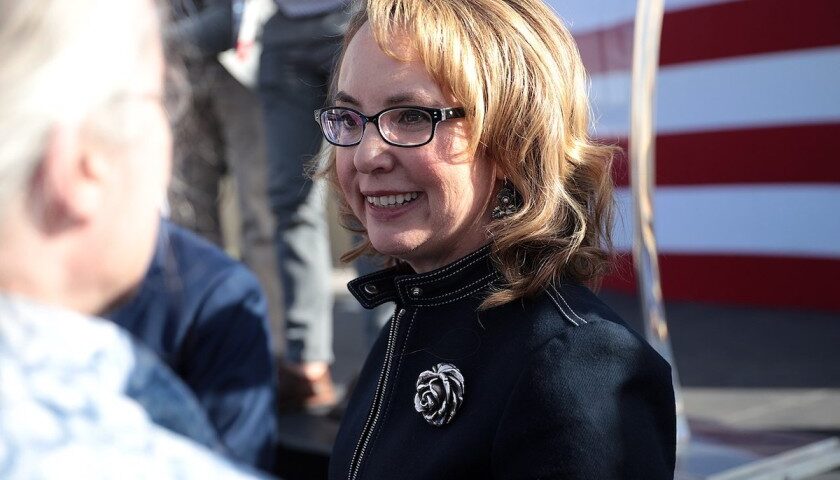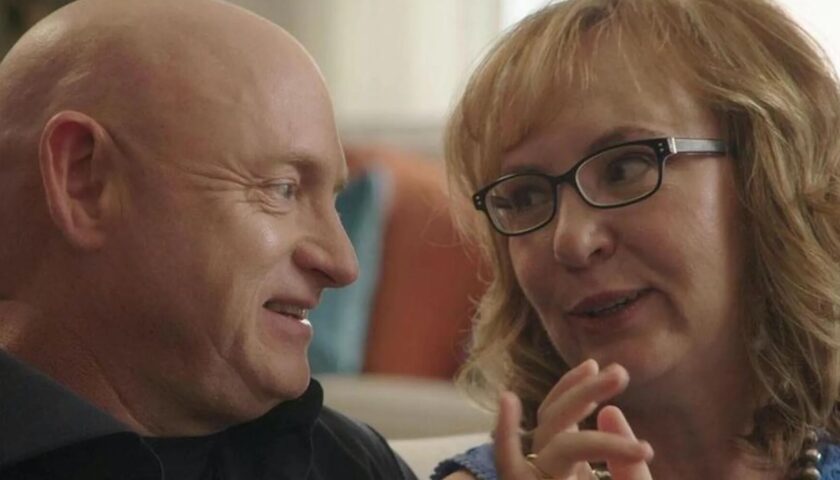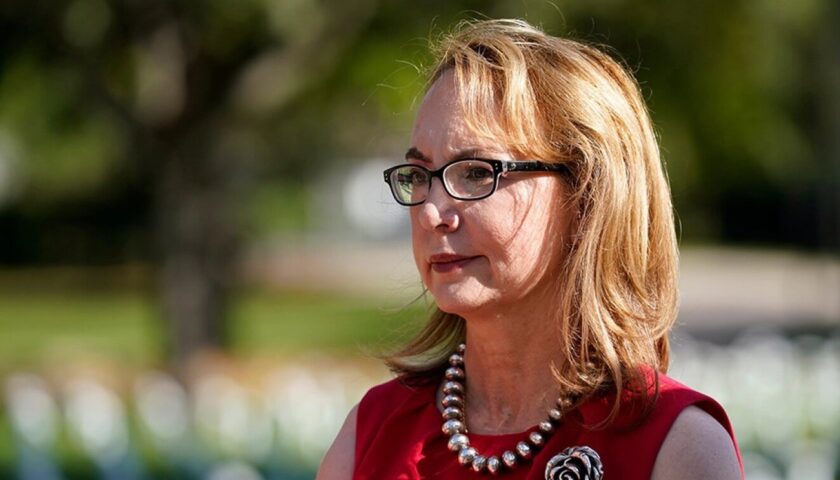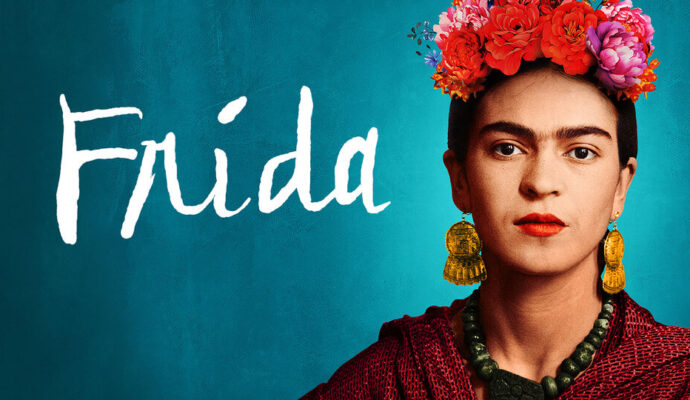“Gabby Giffords Won’t Back Down” (2022) – “So many people hurt. A lot of people died. Always connected to them. Grateful to survive. I’m alive.” – Gabrielle Dee Giffords
On Jan. 8, 2011 in front of a Tucson, Ariz. Safeway grocery store, a lone shooter wreaked havoc on a Congress on Your Corner event and killed six people and injured 13 others. U.S. Congresswoman Gabrielle ‘Gabby’ Giffords was one of the wounded, shot in the head and then rushed to a hospital.
While watching directors Julie Cohen and Betsy West’s revealing documentary about the former United States congresswoman, this critic regularly repeated to himself, “My God, it’s a miracle that she survived.”
About six minutes into the movie, neurosurgeon Dr. Dong Kim describes the bullet’s trajectory with frank composure, but simultaneously, Cohen and West present a computer model of Ms. Giffords’ skull and the projectile’s path that tears right through it. The result for the audience is utter despair at that moment because this destructive collision between a metal slug and a human brain surely would be fatal…except – somehow, someway – it wasn’t.
Cohen and West teamed up to make 2018’s “RBG”, an insightful doc about the Supreme Court Justice, and this dynamic directing duo has strung together other enlightening films that feature strong, influential American women, including “My Name is Pauli Murray” (2021), “Julia” (2021), and now “Gabby Giffords Won’t Back Down”.
Although Gabby has lived thousands of notable days, that fateful January 2011 morning is the 52-year-old’s most consequential. Our filmmakers candidly approach it with Gabby and her husband, U.S. Senator Mark Kelly, which translates into – seemingly – equal parts of heartbreak and inspiration.
Let’s look at the heartbreak first.
After Gabby and Mark reach the hospital, he frequently filmed her recovery as a document, and 10-plus years later, the couple shares their troubling days on video with Cohen and West. Gabby is seen in her most vulnerable state, and she attempts to process her immediate situation with hospital staff, doctors, speech and physical therapists, and family members concentrating on her care.
Meanwhile, Gabby suffers from aphasia.
Its official definition, according to Google, is “a language disorder caused by damage in a specific area of the brain that controls language and expression. Aphasia leaves a person unable to communicate effectively with others.”
By featuring many hospital scenes with Gabby donning a shaved head and ragged scars, coping with limited mobility, and grappling with her speech, these moments act as a double-whammy on our senses. These struggles rip into our feelings, but the film volleys between Gabby’s 2011-to-present-day existence and her carefree, physically-healthy pre-2011 years. Viewing the contrast between her past and present is profoundly affecting, but Ms. Giffords has made extraordinary strides over the last 11 years. She’s a fighter, and so is Mark.
Through top-notch remembrance devices like precious B-roll and past photos of this energetic go-getting Tucsonan, Cohen and West offer an upbeat portrait of Ms. Giffords before 2011, a whirlwind of charisma and vitality who became an Arizona House Representative at age 30, an Arizona Senator at 32, and a U.S. Congresswoman at 36.
So, we sympathize with Gabby when she says, “I love to talk, and I’m so quiet now.”
Brutal.
The film’s first 55 minutes primarily focus on Gabby’s journey, which includes her falling in love with an astronaut. Gabby and Mark’s inspiring devotion to each other shines through every on-screen second, and the remaining 40 minutes feature the couple moving forward together, attempting to instill change in the country with new gun safety proposals and Mark’s U.S. Senate career.
At this point, the doc takes a tonal shift into more mechanical spaces. The material turns political into broader messages about gun safety, which will turn off a portion of the audience. Still, life dragged Gabby and Mark through the wringer, so the movie’s direction feels like a natural progression. Gabby and Mark have a viewpoint on the never-ending waves of U.S. gun violence, and the movie expands from Tucson to Sandy Hook, Orlando, Las Vegas, and so on.
Key Democrat lawmakers speak to Cohen and West, including former U.S. President Barack Obama.
(In a March 22, 2022 The Hollywood Reporter interview with Mia Galuppo, Cohen says, “We actually have asked Obama for interviews previously, but this was the one he said “yes” to. I think really largely as a function of his admiration and affection for Gabby Giffords.”)
In the film, President Obama says, “Tucson was the first mass shooting during my presidency,” and he adds, “And sadly, it is then repeated over and over and over and over and over again.”
For any moviegoer – especially Arizona residents, including me – it’s challenging to relive Gabby’s darkest hour over 95 minutes, but she, Mark, their family, friends, and colleagues persevere to stay in lighted and enlightened spaces for the foreseeable future.
No, Gabby won’t back down, but your emotional walls probably will. Mine did. Bring tissues.
⭐⭐⭐ out of ⭐⭐⭐⭐
Directed by: Julie Cohen and Betsy West
Starring: Gabrielle Giffords, Mark Kelly, and Barack Obama
Runtime: 95 minutes
Rated: PG-13
Image credits: Briarcliff Entertainment







